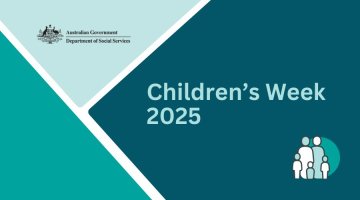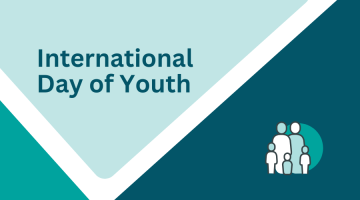About the FaC Activity
We fund programs and services through grants to service providers. The service providers run the programs and services.
The goal of the programs and services is to improve the wellbeing of children and young people, their families, and communities. This helps vulnerable people feel supported and happy in their community.
At the centre of the FaC Activity are 3 goals:
- Children and young people thrive.
- Adults are empowered.
- Family relationships flourish.
Together these support cohesive communities.
FaC Activity programs and services
The FaC Activity programs and services help people at different stages of life and through different situations.
Children and parents
Family focused services
Adult services for care leavers and adoptees
Support for service providers
Funded organisations must follow the requirements set out in the grant agreement. Organisations must report back to the department about what is and isn’t working well. This means we can make sure each program is getting the desired results. We have provided resources to help with this.
Outcomes Framework
The Families and Children Activity Outcomes Framework outlines the key outcomes funded programs and services need to achieve.
Using the Outcomes Framework
The Outcomes Framework is a guide for service providers so they can deliver their activity and report on it in the DSS Data Exchange (DEX). Service providers will use DEX to measure how well their program is meeting its goals.
These documents explain how to link the outcomes in the Outcomes Framework to report in DEX.
There are also fact sheets, task cards, webinars and e-learning modules to help use DEX. These are available on the DEX website(Opens in a new tab/window).
Service providers should also refer to the outcomes in the Outcomes Framework in their Program Logics, Activity Work Plans, and reports. Each program has its own reporting requirements. These are listed on their program pages.
Families and Children Activity Administrative Approval Requirements
The Families and Children Activity Administrative Approval Requirements set quality service standards. They cover key risk areas:
- governance
- financial management
- viability
- performance management
- issues management.
The grant agreement specifies if the service provider must follow these requirements.
Ongoing self-assessment is part of the requirements. It ensures quality services are being delivered and staff are supported. Organisations may also be externally assessed against the approval requirements.
Child Family Community Australia
Child Family Community Australia is run by Australian Institute of Family Studies (AIFS). It is an information exchange for the families and children sector.
Evidence and evaluation support
AIFS offers evidence-based planning, implementation, and evaluation resources to FaC Activity service providers. They can also provide advice on choosing outcomes to measure and selecting measurement tools.
Find out more:
- Visit the AIFS website(Opens in a new tab/window) for evidence and evaluation support.
- Email Fac-Evidence-Evaluation@aifs.gov.au to join a regular online drop-in session with AIFS.
Critical incident reporting
FaC Activity service providers must notify the department of critical incidents. This must happen within 48 hours of the incident or within 48 hours of becoming aware of incidents.
To report the incident:
- fill in the critical incident reporting template with the details
- send the completed form to the Funding Arrangement Manager listed in the grant agreement.
Complaints
All providers have ways to provide feedback on their services. They will be able to give you information about their complaints policy. This is how concerns should be raised in the first instance.
If you are not comfortable talking directly with the service provider or if you are not happy with how your complaint has been managed, you can contact us.
For details about how to provide feedback or make a complaint to the department see Enquiries and feedback.
News
Children’s Week 2025

Today is International Youth Day
